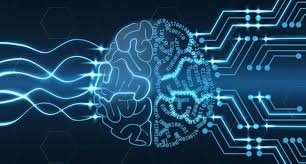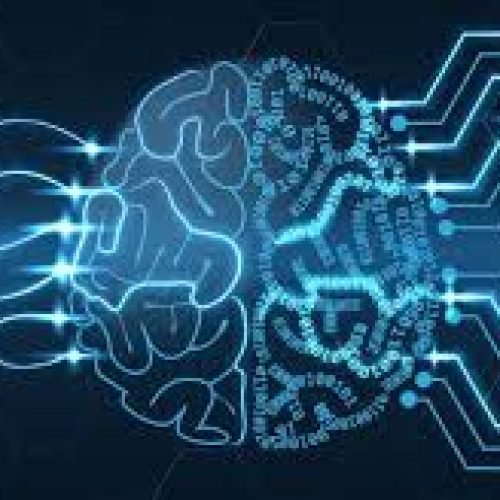In the fast advancing digital era, the ability to understand of computer science transcends being merely advantageous; it is a necessity. Exploring computer science not only opens doors to diverse career opportunities but also cultivates a mindset of problem-solving and innovation. In this comprehensive exploration, we will delve into the essence of computer science education, the role it plays in our lives, and how the right computer science books can be invaluable companions on this learning journey.
1. Introduction to Exploring Computer Science
The term “computer science” often evokes images of complex codes and algorithms, but at its core, it is about unraveling the secret of technology. Covering a broad range of topics, from programming languages to artificial intelligence, computer science creates a vast and exciting landscape for exploration.
1.1 The Evolving Landscape of Computer Science
In today’s world, where technology is the driving force behind progress, the relevance of computer science cannot be overstated. As we witness the rapid evolution of digital ecosystems, the need to comprehend the fundamentals of computing becomes increasingly pivotal.
2. The Key Pillars of Computer Science Education:
Embarking on a journey of exploring computer science requires an understanding of its foundational pillars.
2.1 Programming Languages and Their Significance
At the heart of computer science lies the ability to communicate with machines through programming languages. From Python to Java, each language brings its own set of capabilities, serving as tools for developers to bring their ideas to life.
2.2 Understanding Algorithms and Problem-Solving
Algorithms are the unacknowledged heroes of the digital world, solving complex problems with accuracy. Learning to design and implement algorithms is a fundamental skill that forms the backbone of computer science education.
3. The Role of Exploring Computer Science in Education
In an era where technology is reshaping industries, introducing computer science in education plays a pivotal role.
3.1 Bridging the Diversity Gap in STEM
Diversity in STEM fields is a pressing concern. Exploring computer science acts as a bridge, encouraging individuals from all backgrounds to participate in the tech revolution.
3.2 Encouraging Critical Thinking Skills
Computer science education goes beyond coding; it fosters critical thinking and logical reasoning. These skills are invaluable, not only in technology-related professions but in various aspects of life.
4. Benefits of Integrating Computer Science in School Curriculum
As schools embrace the digital age, integrating computer science into the curriculum yields a multitude of benefits.
4.1 Enhancing Analytical Skills
The analytical mindset developed through computer science education enhances problem-solving skills. Students learn to break down complex issues into manageable components, a skill applicable across disciplines.
4.2 Fostering Creativity and Innovation
Contrary to the misconception of computer science being purely analytical, it is a playground for creativity. Coding is an art form, and the canvas is the screen. Exploring computer science nurtures innovation and the ability to think outside the box.
5. Practical Applications of Computer Science in Daily Life
The impact of computer science extends far beyond the confines of classrooms and coding basic training.
5.1 Impact on Various Industries
From healthcare to finance, computer science has revolutionized industries. Understanding its applications provides individuals with the tools to contribute meaningfully to diverse sectors.
5.2 Real-World Problem-Solving Through Technology
The ability to apply computer science principles to real-world problems is a skill that transcends job titles. Whether addressing social issues or streamlining business operations, the principles remain the same.
6. Must-Have Skills for Computer Science Enthusiasts
Aspiring computer scientists need more than just theoretical knowledge; they need a toolkit of practical skills.
6.1 Coding Proficiency and Its Importance
Coding is the language of computers. Proficiency in coding opens doors to endless possibilities, empowering individuals to turn ideas into functional programs.
6.2 Adaptability in a Tech-Driven World
The tech landscape is ever-changing. Being adaptable and open to continuous learning is a non-negotiable trait for anyone move into the realm of computer science.
7. Resources for Learning Computer Science
With the increasing demand for computer science education, an excess of resources are available for admirer.
7.1 Online Courses and Platforms
Online platforms like Codecademy, Coursera, and edX offer comprehensive courses suitable for all skill levels. These platforms provide interactive learning experiences, allowing individuals to grasp concepts at their own pace.
7.2 Importance of Hands-On Experience
While theoretical knowledge is pivotal, hands-on experience solidifies understanding. Engaging in coding projects, participating in hackathons, and contributing to open-source initiatives are invaluable experiences for budding computer scientists.
8. Exploring Computer Science Degrees and Career Paths
For those considering a more formal education in computer science, understanding the available degrees and career paths is essential.
8.1 Popular Computer Science Specializations
Computer science offers various specializations, from artificial intelligence to cyber security. Choosing a specialization aligning with personal interests and career goals is a pivotal decision.
8.2 High-Demand Jobs in the Tech Industry
The tech industry is booming, and with it comes a demand for skilled professionals. Exploring the diverse job opportunities and understanding industry trends aids in making informed career choices.
9. Top Computer Science Books for Beginners
Books remain timeless companions in the journey of knowledge addition. For beginners, selecting the right books can make the learning process more enjoyable and effective.
9.1 Comprehensive Guide for Self-Learners
Books like “Python Crash Course” and “Code: The Hidden Language of Computer Hardware and Software” serve as comprehensive guides for self-learners, providing a solid foundation.
9.2 Engaging and Informative Reads
“Clean Code: A Handbook of Agile Software Craftsmanship” and “The Pragmatic Programmer” are not only informative but also engaging, making the learning process enjoyable.
10. How Computer Science Books Complement Academic Learning
While academic courses provide structured learning, books offer a different perspective and depth.
10.1 Supplementing Theoretical Knowledge
Books delve into concepts with more detail, offering insights that complement what is learned in classrooms or online courses.
10.2 Providing Real-World Insights and Case Studies
Real-world applications and case studies featured in Books Bridge the gap between theory and practice, giving readers a holistic understanding of computer science.
11. Choosing the Right Computer Science Book for Your Level
The wealth of computer science books can be very large. Tailoring book choices to individual skill levels is key.
11.1 Beginner-Friendly Options
For beginners, “Cracking the Coding Interview” and “Introduction to Algorithms” offer a gentle introduction to core concepts.
11.2 Advanced Resources for Experienced Individuals
Advanced learners benefit from books like “Artificial Intelligence: A Modern Approach” and “Structure and Interpretation of Computer Programs,” providing in-depth knowledge.
12. Reviews and Recommendations: What Readers Say About Computer Science Books
The perspective of fellow learners can guide book selections. Real experiences shared by readers provide valuable insights.
12.1 Crowd-Sourced Opinions on Popular Books
Online platforms and forums are valuable collection of opinions. Understanding the collective sentiment towards a book aids in making informed choices.
12.2 Real Experiences Shared by Learners
Reading personal experiences shared by individuals who have gone through similar learning journeys gives prospective readers a glimpse into what to expect.
13. Challenges in Learning Computer Science and How to Overcome Them
The road to mastering computer science is not without challenges. Acknowledging and overcoming these hurdles is part of the learning process.
13.1 Overcoming Initial Barriers
The initial stages of learning may be alarming. Breaking down the learning process into smaller, manageable goals helps overcome the initial barriers.
13.2 Building Resilience in the Face of Complexity
Computer science can be complex, but flexibility is key. Embracing challenges as opportunities for growth fosters a mindset beneficial to continuous improvement.
14. Future Trends in Computer Science Education
The field of computer science is dynamic, with constant advancements and emerging trends.
14.1 Emerging Technologies Shaping the Future
Artificial intelligence, quantum computing, and block chain are among the technologies shaping the future of computer science education. Staying updated on these trends is essential for aspiring professionals.
14.2 Continuous Learning in a Dynamic Field
The journey of exploring computer science is a lifelong commitment. Embracing continuous learning ensures staying at the forefront of technological advancements.
15. Conclusion
In the ever-evolving world of technology, the significance of exploring computer science cannot be overstated. From improving education to shaping career paths, the benefits are vast. As you embark on this journey, remember that learning is a continuous process, and each step brings you closer to unlocking the boundless potential of the digital realm.
16. Appendix: Exploring Computer Science Further
For those seeking even deeper knowledge, the exploration of advanced topics is essential. Additionally, discovering additional resources and communities dedicated to ongoing learning can provide a more comprehensive understanding of the ever-expanding field of computer science.








